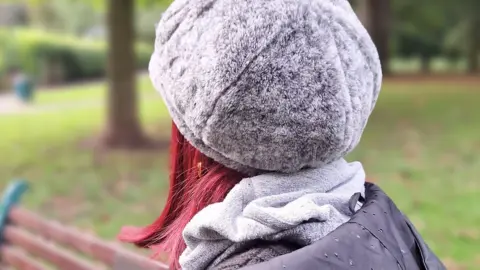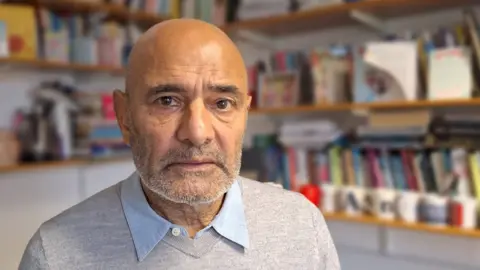Mental health worker punched after police refused help
 BBC
BBCA social worker was punched at work after police refused to support her as she assessed a client.
Plans to reduce police attendance at mental health call-outs have sparked fears more workers could be hurt or even killed.
The British Association of Social Workers (BASW) Cymru said the initiative put staff in "grave danger".
The Home Office said it ensured people received the most appropriate mental health care while freeing up police.
Sadie, not her real name, is an approved mental health professional (AMHP) who assesses whether people with severe mental illness are a risk to themselves or others and need to be detained or sectioned to hospital.
Before a visit, AMHPs look at potential risks, such as history of violence, to ensure their safety as well as the safety of others.
There are times when the risk is so great they call on the police to support them while they make a Mental Health Act assessment.
'It could have been prevented'
Sadie called the police before visiting a client who had a history of violence and assault when ill.
The police told her to call 999 if something happened - which she did after she was attacked.
She said it was distressing and sad because it could have been managed appropriately.
"Often the presence of police will deescalate people," she said.
"It could have been prevented."
Sadie said the situation was very frustrating, adding: "Even though I knew I was at risk, I also knew that they were the only organisation that could manage that risk."
She said she was also concerned about the dignity of her client, who was in view of their neighbours.
Most AMHPs are social workers but they can be psychiatric nurses, occupational therapists or chartered psychologists.
Sadie said work was becoming more dangerous and more scary, as an increase in social worker assaults caused emotional toil.
"As professionals, we're stoic, but there's a period after where you feel quite heightened and nervous about going out," she said.
Sadie added the lack of support was also detrimental to clients' recovery as messy assessments were distressing.
"There's a lack of trust, they end up being restrained, people feel powerless and they haven't got an element of choice with what's happening," she said.
Sadie believes the situation will get worse with the roll out of a UK government initiative called Right Care, Right Person which aims to reduce demand on police.
Social worker David, not his real name, said AMHPs would probably die in the future as it had become increasingly difficult to get police support, even when there was evidence of weapons or threat to others.
"We've had a recent death in Wales where a mother was stabbed to death during a Mental Health Act assessment," he said.
"That's an example of how wrong it can go when police are not there."

Abyd Quinn Aziz, of BASW Cymru's national committee, said he was worried the new scheme would put professionals at grave risk of danger.
He added there was a shortage of AMHPs and believed Right Care, Right Person would impact recruitment.
The social workers did not blame the police but criticised the lack of resources for people who had severe mental ill health.
Assistant chief constable Wendy Gunney, Wales lead of Right Care, Right Person, said all Welsh police forces would implement the scheme.
She said they would work collaboratively with health and social care to ensure the scheme was a success.
The Welsh lead for the Police Federation of Wales and England described the words of the BASW as "disappointing" while speaking on BBC Radio Wales Breakfast.
"As practitioners, whether that be a social worker, a mental health practitioner or a medical practitioner, we all try and work to get the best result. That kind of language pits us against each other, which isn't helpful in getting a successful outcome," Nicky Ryan said.
She said police forces no longer had the ability to "pick up the capacity when other organisations have reached capacity", adding: "We cannot fulfil our role of keeping the peace and protecting the public and fighting crime if we are picking up work that other agencies are trained and funded to undertake."
A Home Office spokesperson said the UK government was working with Welsh officials and policing partners in order to consider a national partnership agreement in Wales, similar to what was in place in England.
"We are also dedicated to giving the police the resources they need to continue protecting our communities including bolstering the workforce," they said.
